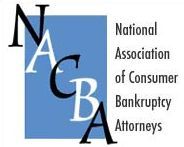Yes, you can file for bankruptcy even if you have income from a job, but the amount of your income matters.
You can file chapter 7 bankruptcy if you pass the “means test.” When you file a bankruptcy to deal with credit card bills, personal loans, car payments, generally any debt which you owe because of consumer spending and personal living expenses, the amount of your income over the past six months is compared to the average income for persons living in your area. If your income exceeds the average income for your area, known as the “median” income, you are not eligible for chapter 7 bankruptcy, but you could still file a chapter 13 bankruptcy. The rules are different when most of your debts were incurred as the result of operating a business, so this answer focuses on persons having mostly consumer debts.
The average income used to compare to your income is known as the “median” income. The IRS has median income numbers that differ from one area to another, based on the cost of living and average income in each area. Those numbers are revised from time to time, and the IRS numbers recognize that it costs more for a household of four, for example, to live than for a household of just one person.
If your household income for the past six months exceeds the median income for a household of your size, i.e. number of persons in your household, the law will say you cannot file for chapter 7 bankruptcy, because the law would assume you can afford to repay some or all of your debts. On that basis, there would be a presumption that you would be abusing the bankruptcy laws by filing a chapter 7, instead of trying to repay your creditors. That is known as failing the means test. However, you could pass the means test with the same amount of income if the number of persons in your household is higher.
You can file for chapter 13 bankruptcy whether your income is above OR below the median income for your household size. If your income is too high to pass the means test, you can still file a chapter 13 bankruptcy. In chapter 13, you are required to make payments to your creditors through a chapter 13 plan. You send the payments to the chapter 13 trustee, who then distributes the money to your creditors in the amounts provided for in the chapter 13 plan for your case.
The chapter 13 plan can last anywhere from three to five years if your income was below the median, but it must last a full five years if your income was above the median. If you are able to pay your unsecured creditors (such as credit cards, personal loans, medical bills) in full in less than three years (for below median) or five years (for above median), your plan can end when the unsecured creditors have been paid in full.
In most cases, there is either too much debt or too little income to pay the unsecured creditors in full, so those creditors only receive a fraction of what was owed. For that reason, most persons who successfully complete their plan payments over three to five years still receive a discharge as to the amounts which remain unpaid at the end of the plan.

